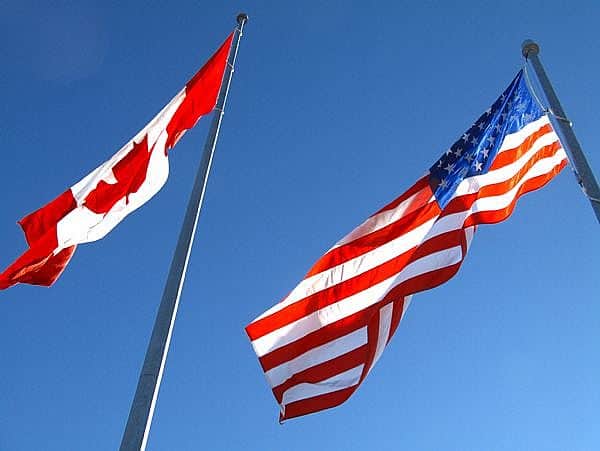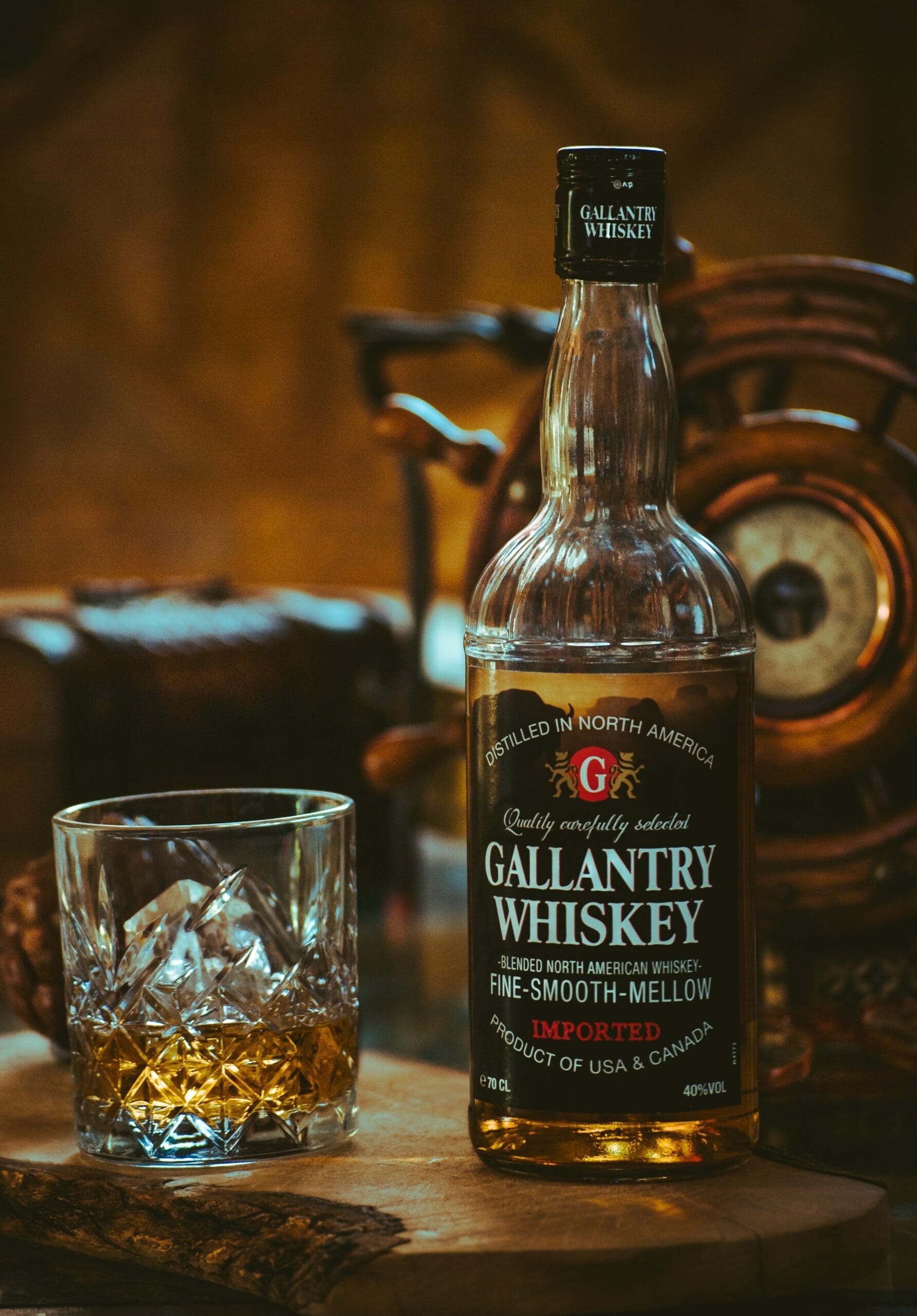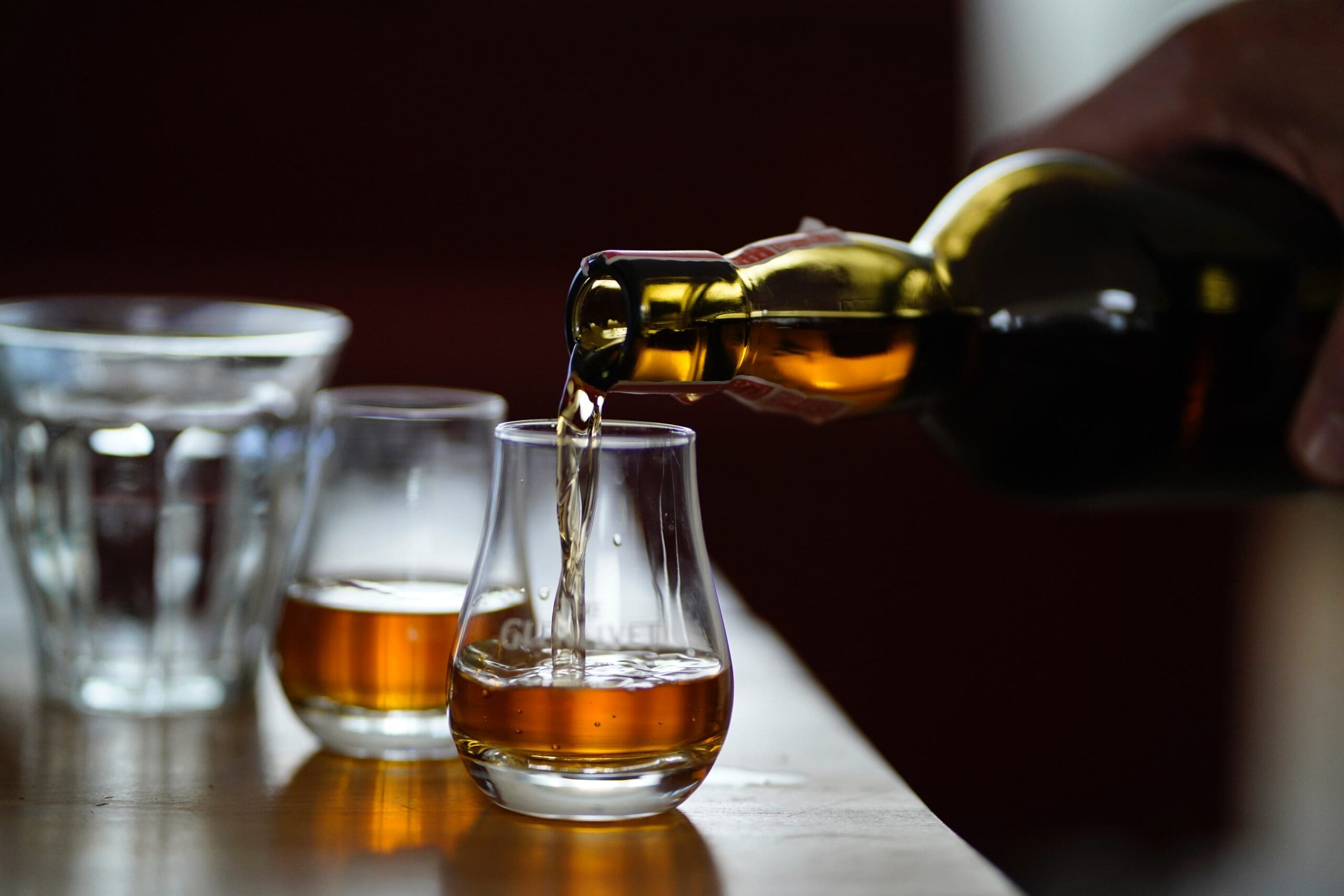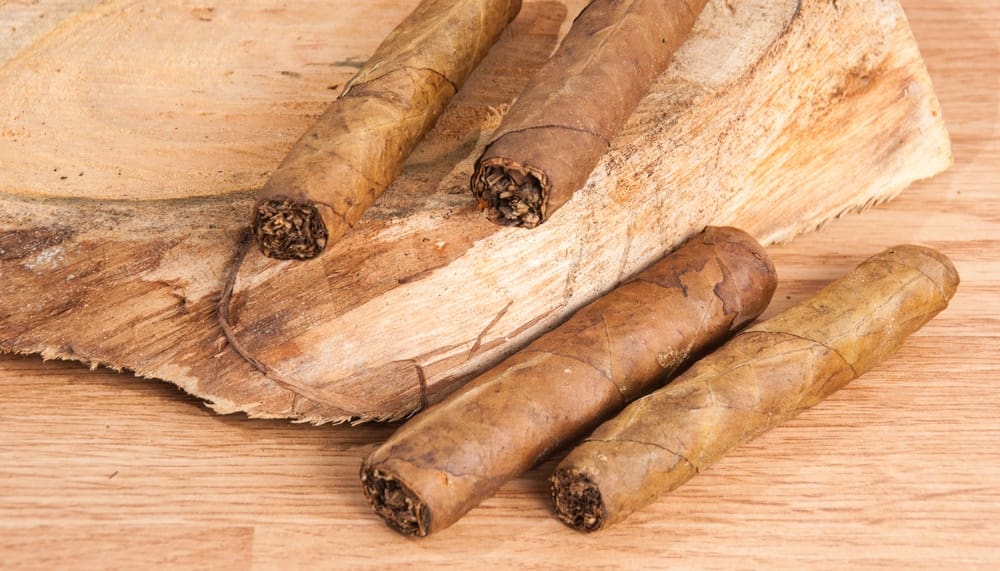

With the Canadian and US dollars hovering around the same rate, many Canadians are interested in saving a few bucks by shopping in the US. People always remark how much cheaper alcohol and tobacco are in the US, but before you stock up your cabinets in the States, you should be aware of the duty rates you’ll face at the borders. We also want to cover the consequences if you are caught Importing Scotch & Cigars. This applies to Canadian residents returning to Canada, specifically residents of British Columbia.
Importing Scotch & Cigars: Whisky
Alcohol is one of the most expensive things to import into Canada. There are a variety of duties and taxes that are applied, often making the bottle cheaper to buy in Canada (which is probably the point).
Being that a broad selection of whisky (scotch, in particular) is made outside of Canada, it attracts duty as well as tax. Duty refers to the tariff applied to goods manufactured in countries that Canada does not have any trade agreements with. The North American Free Trade Agreement (NAFTA) allows for all North American made goods to enter Canada duty free. Thankfully, scotch whisky is one of the items that does not have a duty rate. Other alcohols, such as vodka, have small rates ($0.1228 per LPA which is about $0.06 for a regular 40oz bottle.)
Excise duty is calculated on the litres of pure alcohol (LPA) at a rate of $11.696 per LPA. To calculate the LPA of the liquor, (which will change depending on whether your bottle is cask strength or regular) multiply the volume by the percentage.
EXCISE DUTY = [Quantity (in litres) x Percentage of Alcohol] x 11.696
In Canada there are two taxes to pay; federal and provincial. While the federal tax remains constant, each province has a different PST rate, unless you’re one of the lucky residents where the HST prevails, such as BC. The taxable price for all goods being imported is the price paid including any US tax (converted to Canadian dollars) plus the duty rate. This is the customs value and yes, it is tax on tax.
TAX = [Customs Value (Price + Excise Duty)] x 12%
By far, the most expensive cost associated to the importation of alcohol, or tobacco, is the provincial mark-up. This varies by province so we’ll use the rates for BC again. Fortunately this is an ad valorem rate, meaning it’s based on the quantity not the price. Therefore you will pay the same mark-up for a $100 bottle as a $10,000 bottle of the same volume.
PROV. ALC. MARK-UP = $40.00 x Quantity (in litres)
Therefore to import a 40 oz (1.14L) bottle of scotch (43.5% alcohol) purchased for $50 USD (including tax), based on an exchange rate of 1.0231, it will cost $58.24 CAD in additional duties and taxes.
[1.14 x 43.5] x $11.696 = $5.80 (Excise Duty)
[$51.16 + $5.80] x 12% = $6.84 (Tax)
40 x 1.14 = $45.60 (Provincial Alcohol Mark-up)
____________________
Total = $58.24
The whole bottle ends up costing $109.40 CAD before you get a chance to enjoy it in Canada.

One of the few things more expensive to import than alcohol are cigars. They end up costing much more as they attract several duties and excise taxes. In order to calculate the Customs Value, we need to calculate the duties and excise tax.
There are two duties that are combined (foreign duty and excise duty). We are assuming that you would be importing cigars from outside of North America, but if we’re wrong, omit the 8% duty.
DUTY = Price x 8%
EXCISE DUTY = Quantity (parts per thousand) x 18.5
The excise tax is based on the price and the duties.
EXCISE TAX = [Price + Duties] x 67%
The federal and provincial taxes are then applied to this value. Once again, we’ll use the 12% HST rate for BC.
TAX = [Price + Duties + Excise Tax] x 12%
Finally, we’ll use the BC provincial tobacco mark-up. Unlike alcohol, this is a percentage rate based on the price.
PROV. TOB. MARK-UP = [Price + Duties + Excise Tax] x 77%
Therefore to import a box of 25 non-domestic cigars at a value of $100 USD (including tax) with an exchange rate of 1.0231, you will pay an additional $247.91 upon import.
$102.31 x 8% = $8.184 (Duty)
0.025 x 18.5 = $0.462 (Excise Duty)
____________________
Total Duties = $8.65
[$102.31 + $8.65] x 67% = $74.34 (Excise Tax)
[$102.31 + $8.65 + $74.34] x 12% = $22.24 (Tax)
[$102.31 + $8.65 + $74.34] x 77% = $142.68 (Provincial Tobacco Mark-up)
__________________________________
Total = $247.91
A box of cigars ends up costing $350.22 CAD or $14.00 per cigar. Depending on the brand, this may or may not be a good deal.
Solutions
There is still hope for the savvy Canadian shopper in the US; Canadian importation exemptions. This allows you to bring goods of a certain value into the country without paying regular duty and taxes. In order to be eligible for duty and tax free alcohol and tobacco, you need to stay continuously outside of the US for a minimum of 48 hours. And when the Canadian border says hours, it means hours.
After 48 hours, you are allowed to import only one of the following amounts of alcohol free of duty and taxes:
- 1.5 litres (53 imperial ounces) of wine;
- a total of 1.14 litres (40 ounces) of alcoholic beverages; or
- up to a maximum of 8.5 litres of beer or ale.
Alcoholic beverages are products that exceed 0.5% alcohol by volume. Minimum ages for the importation of alcoholic beverages, as prescribed by provincial or territorial authorities, are 18 years for the provinces of Alberta, Manitoba andQuebec and 19 years for the remaining provinces and territories. You are allowed to bring more than these amounts, but for any additional alcohol you will pay the full duties and taxes on your overage. If you are bringing large quantities, you may require an import license from the province.
Tobacco exemptions are as follows: If you are 18 years of age or over, you are allowed to bring in all of the following amounts of tobacco into Canada free of duty and taxes within your personal exemption:
- 200 cigarettes;
- 50 cigars;
- 200 grams (7 ounces) of manufactured tobacco; and
- 200 tobacco sticks.
More information can be found here.
Warning when Importing Scotch & Cigars


The Aspiring Gentleman does not advocate smuggling or anything that contravenes the Canadian border policies but we are not naïve to think that others may not share this same outlook. Therefore we thought it wise to pass on information regarding the consequences of smuggling alcohol or tobacco into Canada.
If you do not declare goods, or if you falsely declare them, the Canada Border Services Agency (CBSA) can seize the goods. With alcohol or tobacco, this means that you lose them permanently and depending on the circumstances, you may have to pay a penalty to get your vehicle back (assuming you’re crossing by car). Depending on the quantity, there is the possibility of being prosecuted criminally.
A record of infractions is kept in the CBSA computer system (from what we’ve heard, between 5-10 years). If you have an infraction record, you may have to undergo a more detailed examination on future trips in every mode of travel. So if you had a seizure in the in your car, when you’re flying into Canada you will be searched or any parcels you receive in the mail from outside of Canada will be opened. You may also become ineligible for the NEXUS and CANPASS programs. Or if you are already a member of these programs, your membership will be revoked.
Regarding alcohol via mail, CBSA states that only persons or organizations authorized by a provincial government or the Government of Canada are permitted to import intoxicating liquor by mail. When border services officers find unauthorized intoxicating liquor in a mail item, they remove it from the item and turn it over to Canada Post for disposal.
There are several online retailers who will ship cross-border; some even declare the goods as a gift or other item if you so request. While this might save you the duties and taxes listed above, beware the consequences. It is ultimately your decision whether you choose to roll the dice and break Canadian customs law; we know many people who regularly do. Depending on the retailer and shipping method, the rate of seizure ranges from 5-50%.



